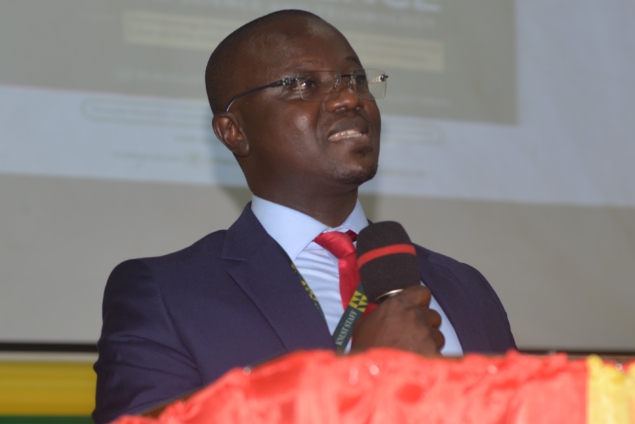A shift to a digitalized economy combined with enabling sound government policies can improve economic efficiency in all sectors.
That is according to the Dean of the Faculty of Law of the Kwame Nkrumah University of Science and Technology, Dr. Ernest Owusu-Dapaa.
He was speaking at the maiden edition of an KNUST Faculty of Law International Conference on Law, Science and Technology.
The conference is under the theme: “Harnessing Digitalization for Economic Development: Law at the intersection of science and technology."
The conference attracted renowned academics and legal experts in the field of law, science and technology and other intersecting disciplines.
Participants discussed key challenges that require a targeted and nuanced understanding of the cross-cutting nature of digital transformation and its policy dynamics in Ghana and Africa.
Dr. Ernest Owusu-Dapaa said the initiative is in line with the faculty’s aim to make their activities available for national benefit.
“As a learning community, we have a duty to undertake research to generate knowledge and disseminate the same to support sustainable industrial and socio-economic development.
“Through this conference, we will build, reinforce and scale up innovative solutions to improving the legal channels that can be adopted in response to potential challenges that will emerge from our digitalization drive,” he said.
Vice-Chancellor of KNUST, Prof. Rita Akosua Dickson emphasized the university’s commitment to improving the digital space.
“We will continue to research and develop applications, software and programmes to help drive the digitalization agenda. Not only in the justice delivery system but for the common use of the ordinary Ghanaian,” she said this in a speech read on her behalf by the Pro Vice-Chancellor, Prof. Ellis Owusu-Dapaa.
A computer engineer, Prof. Kwame Osei Boateng called for policies to realize the gains in digitization.
“We have to ensure a sufficient level of internet infrastructure development and digital education and also to reduce the digital divide.
“This brings policy makers face to face with challenges of harnessing the maximum benefits of digitalization,” he noted.
The conference is divided into 6 cardinal themes aimed at providing insights into the interface of the law, its boundaries with science and technology.
These include; Technology and the Court, Technology and Medical Law Issues, Rights to Privacy and Technology, Emerging Technology and the Law, Digitalization Law and Ethics and Technology Commerce and Banking.
Dr. Owusu-Dapaa revealed that all accepted and presented papers at the conference will feature in the maiden edition of the International African Journal of Law, Science and Technology.
Latest Stories
-
Ghanaian youth unaware of their right to hold politicians accountable – Youth Bridge Foundation
11 mins -
Judge delays Trump sentencing for a third time
27 mins -
2024 WAFCON: Ghana drawn against defending champions South Africa in Group C
56 mins -
Photos from DW-JoyNews street debate on ‘galamsey’
2 hours -
Mimmy Yeboah: Blending heritage with global sophistication, confidence redefined through couture
2 hours -
100 Most Influential People Awards 2024: Brain Hill International School’s Director Mary Anane Awuku honoured
2 hours -
Akufo-Addo commissions 97-km Tema-Mpakadan railway line
2 hours -
Majority requests recall of Parliament
3 hours -
Kanzlsperger and Professor Quartey support WAFA with medical Donation
3 hours -
Gideon Boako donates 10 industrial sewing machines to Yamfo Technical Institute
3 hours -
‘Golden Boy’ Abdul Karim Razak honored at WAFU-B general assembly
3 hours -
Buipewura Jinapor secures Vice Presidential position in National House of Chiefs with record votes
3 hours -
2024 election: I want results to come out like ‘milk and honey’ – Toobu
3 hours -
Ghana’s Henry Bukari hands over chairmanship of ECOWAS Brown Card Council of Bureaux
3 hours -
Residents of Dome-Kwabenya on edge ahead of December elections
4 hours

